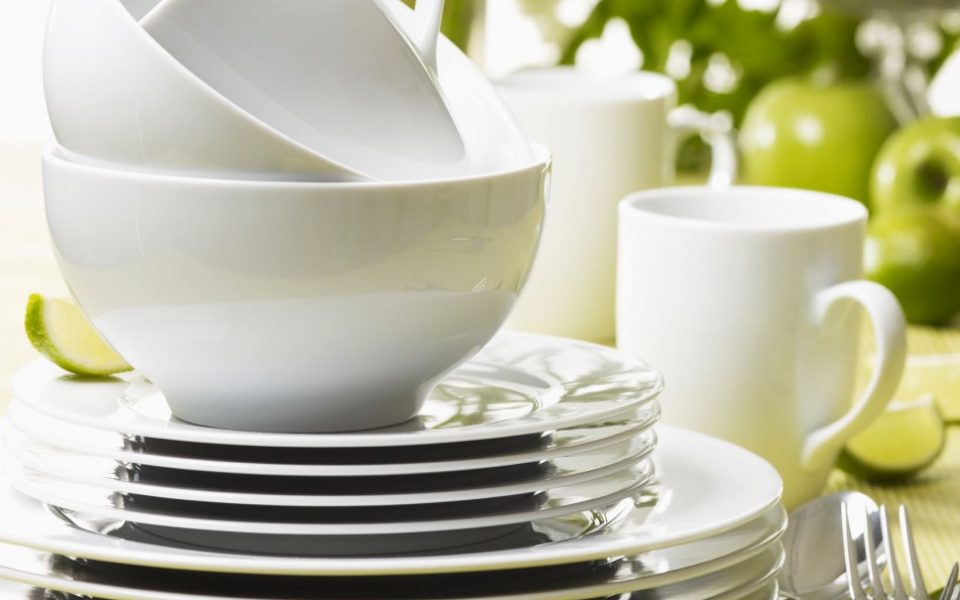When it comes to choosing the best material for your dinnerware, bakeware and cookware, the choices offered in the market are multiple. There is all the family of ceramics (earthenware, stoneware, porcelain and bone china) but also glass, melamine or plastic.
To answer the question, we will focus on only the ceramic made dinnerware. To understand the pros and cons of each material, we will study each one of them and gather key things to know about each material so we can understand the differences between porcelain and stoneware and bone china.
The types of ceramic
Here are some short descriptions of the 3 type of ceramics we will be focusing on – stoneware, porcelain and bone china.
- Earthenware: this type of ceramic is heavy, sturdy and casual. The color is usually brown or red. It’s better to keep it off temperature changes and it’s better to avoid the microwave and oven. This material is very porous which means it could stain or absorb liquid. It is also the cheapest but also the less resistant of all the type of ceramics. Often hand painted and fragile.
- Stoneware: less porous than earthenware, stoneware is also more durable and has a lighter color (but is more opaque than porcelain). It’s fired at a temperature between 2150 and 2330 degrees Fahrenheit. It is pretty durable but not as refined and delicate as porcelain. It’s a good family style option but keep in mind it’s not eternal.
- Porcelain: is the non porous option of ceramic. It has an incredible durability resulting from the high firing temperature. Porcelain is also resistant to microwave, oven and freezer. Finally, this type of ceramic is also dishwasher safe. This material is usually white. REVOL however, has created a black porcelain clay – with the same characteristics as white porcelain but with a different color.
- Bone China: is generally made from a mixture of very refined clay and bone ash. It is very white, almost trans lucid. Bone China is also very elegant and refined but is also very resistant. Great for special occasions but also for daily use.
The differences of style
Earthenware is certainly the most casual and less practical choice. If you are going for something more durable and classy for your dinnerware, the choice should be between stoneware and porcelain. Choosing between Stoneware and Porcelain is often a matter of look and price.
If you want the maximum durability and if you want to avoid chipping, the porcelain is your go to. For a daily use or more formal dinners, white porcelain dinner sets will do a great job. Pick open stock, sets or dinner sets.
If you feel adventurous and want to try a different style but stay with the qualities of porcelain go for a black clay style – such as Arborescence, Equinoxe or Caractere.


Stoneware vs Porcelain when it comes to baking
Avoid using bone chine for warming: when it comes to heating and baking, the choice is really only between Stoneware and Porcelain.
A few facts:
- Heating and cooking: as a general rule, avoid the sudden temperature changes (from the fridge, to the oven, to the dishwasher). Both stoneware and porcelain should not be placed on direct heat EXCEPT the range of cookware by REVOL: REVOLUTION (also compatible on induction and electric heat). Both stoneware and porcelain can be used in the microwave.
- Cleaning: usually both materials are dishwasher safe
- Baking: porcelain being non porous – porcelain dishes are a great options to bake! The heat distributes evenly and the baking will be perfect. Also, glazed porcelain is naturally non stick. So you will enjoy baking with a baker made of porcelain. Like for the Belle cuisine collection: these bakers will bake anything evenly and will make every recipe delicious and easy to make.





